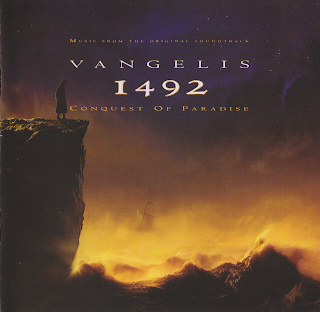Guitar mastermind Joe Bonamassa, a young player with the childhood dream of playing music similar to legends like Stevie Ray Vaughan, Eric Clapton, and Jimi Hendrix, was 22 when he inked a deal with Epic. Hailing from Utica, New York, Bonamassa could play the blues before he could drive a car. He first heard Stevie Ray Vaughan at age four and was instantly taken by Vaughan's high-powered playing. At age eight, he opened for B.B. King, and at age 12, he was playing regularly around upstate New York. It was soon thereafter that Bonamassa hooked up with the band Bloodline, which featured other musicians' sons: Waylon Krieger (Robby Krieger's son), Erin Davis (Miles Davis' drummer kid), and Berry Oakley, Jr. (son of the Allman Brothers bassist). Bloodline released a self-titled album, but Bonamassa wanted to move on. In summer 2000 he guested for Roger McGuinn on Jethro Tull's summer tour, later releasing his debut solo album, A New Day Yesterday. Produced by longtime fan Tom Dowd, the album marked a move toward a more organic and rock-sounding direction. He put together a power trio with drummer Kenny Kramme and bassist Eric Czar and hit the road to support the album.
Upon returning from the road, he hooked up with Dowd to record the muscular and sweeping studio disc So, It's Like That and released a document of the tour, A New Day Yesterday Live. The following year, Bonamassa put out Blues Deluxe, featuring nine cover versions of blues classics alongside three originals. The muscular You & Me appeared in 2006, followed by the more acoustic-tinged Sloe Gin in 2007. A year later, Bonamassa released the two-disc live album Live from Nowhere in Particular, followed in 2009 by The Ballad of John Henry. Late in 2009 he released the DVD Live from the Royal Albert Hall with guest spots from Eric Clapton and Paul Jones. In 2010, the guitarist released his first disc for the Premier Artists label, Black Rock, featuring a guest appearance by B.B. King. It was followed by the debut album from Black Country Communion, a blues-rock supergroup that put him in the company of bassist/vocalist Glenn Hughes, drummer Jason Bonham, and keyboardist Derek Sherinian. Bonamassa, ever the overachiever, released his earthy Dust Bowl in March of 2011, followed by Black Country Communion's 2 in June and by his unique collaboration with vocalist Beth Hart on a searing collection of soul covers entitled Don't Explain in September.
In May of 2012, Bonamassa released Driving Towards the Daylight. The album reunited the guitarist with producer Kevin Shirley, who brought in Aerosmith's Brad Whitford to play rhythm guitar on the 11 tracks. Driving Towards the Daylight was a significant blues hit -- it topped the Billboard blues chart and debuted at number two on the overall British chart -- and Bonamassa didn't slow down. Early in 2013, he released a live CD/DVD set called An Acoustic Evening at the Vienna Opera House and prepared SeeSaw, a studio album of classic covers with vocalist Beth Hart. SeeSaw was released later in 2013, and Bonamassa and Hart followed it up with Live in Amsterdam in March of 2014. After the release of SeeSaw, Bonamassa returned to the studio once again with producer Shirley to record what would be his 11th solo studio album. As a thank-you to his fans for their continued support, Bonamassa announced that the album would be his first release to feature entirely original material. Different Shades of Blue appeared in the fall of 2014, featuring 11 new songs co-written by Bonamassa with various veteran Nashville songwriters. Another busy year followed in 2015, with Bonamassa playing on Mahalia Barnes' Betty Davis tribute Ooh Yea! The Betty Davis Songbook and releasing two separate live collections: Muddy Wolf at Red Rocks in the spring and Live at Radio City Music Hall in the fall.
Returning to Nashville, he recorded his studio follow-up to Different Shades of Blue, working with many of the same songwriters who'd appeared on that 2014 album. Blues of Desperation appeared in March 2016. Another live recording, Live at the Greek Theatre, which celebrated the work of blues legends such as B.B. King, Freddie King, and Albert King, followed that summer. At the beginning of that year, Bonamassa headed out on an all-acoustic tour that saw him performing some of his best-known material in a new way. The tour included two nights at the legendary Carnegie Hall in New York that were filmed and recorded for prosperity. The performances saw him backed by a full band alongside the likes of guest musicians Chinese cellist and erhuist Tina Guo and Egyptian percussionist and composer Hossam Ramzy. The recording, Live at Carnegie Hall: An Acoustic Evening, was released in mid-2017. Bonamassa re-teamed with Beth Hart for Black Coffee, an album of covers that was released in January 2018. Also that year, he delivered British Blues Explosion, a live album recorded during a five-show run at the Royal Navy College in London, in which he performed covers from his top three British influences: Eric Clapton, Jeff Beck, and Jimmy Page.








